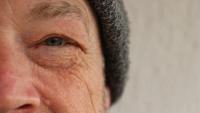 'Pain is inevitable, suffering is optional'' says Steffen, walking slowly in the forest of Fisterra, in Galicia, Spain.
A peace activist who once served in the military at Operation Desert Storm, in 1990, he advocates for the human right to water and sanitation for everyone.
'Pain is inevitable, suffering is optional'' says Steffen, walking slowly in the forest of Fisterra, in Galicia, Spain.
A peace activist who once served in the military at Operation Desert Storm, in 1990, he advocates for the human right to water and sanitation for everyone.
Face to face
23.10.2019 | by Sinem Taş